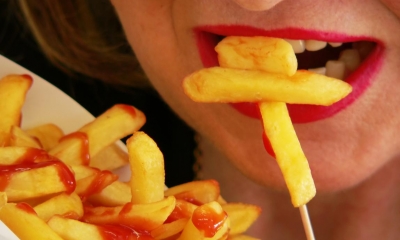
Some of the key areas where legislation is likely to affect your business are listed below. The list is not intended to be exhaustive.
What licences does a contract cleaner need?
You will need a licence from the Gangmasters and Labour Abuse Authority - GLAA (previously the Gangmasters Licensing Authority - GLA) if you're going to supply a worker, or use a worker, to clean areas and machinery used to process or package certain foods - for example fish and shellfish. The licence lasts for a year and you can apply for it online. Visit the GLAA website for details.
If you plan to operate as a window cleaner in Scotland you will probably need to obtain a licence from your local council. Licences last for three years. You can apply for a licence on the Gov.uk website.
If you plan to dispose of your customers' controlled or hazardous waste you will need to register as an upper tier waste carrier with:
- the Environment Agency in England
- Natural Resources Wales
- the Northern Ireland Environment Agency
- the Scottish Environment Protection Agency (SEPA) in Scotland
It currently costs about £155 for the initial registration fee and a further renewal fee of about £105 every three years. A single licence is issued to your business covering all of your waste transporting vehicles.
Note that any business which produces or holds 500kg or more of hazardous waste at a premises in Wales within a 12 month period must register with Natural Resources Wales as a hazardous waste producer. If you produce 500kg or more of hazardous waste at a single customer's site (or at any other site which you do not own or occupy) then it is up to the owner of that site to register. If you remove less than 500kg of waste from a customer's site during a 12 month period, then your own premises or depot must be registered as a 'service premises'. You can find out more about hazardous waste producer registration on the Gov.uk website.
You should be aware that businesses which keep computerised records of individuals' details may be required to register as data users with the Information Commissioner's Office (ICO).
Use of potentially hazardous substances
Under the Control of Substances Hazardous to Health (COSHH) regulations you must protect your employees from any risks associated with the use of 'hazardous' substances. For example, many of the products you use during cleaning operations can damage someone's health if not used responsibly. Any products that have been classified as hazardous must be supplied with a Safety Data Sheet when purchased. You must work out from the information on the sheet the risk to your staff from using the product and then put in place systems to minimise or remove the risk. Your staff must be fully informed and trained in how to use and store these chemicals safely. For more information download the helpful publication Working with substances hazardous to health from the Health and Safety Executive (HSE) website.
The Environmental Protection Act and regulations made under it regulate the disposal of waste chemicals and detergents. Contract cleaners must make sure that they dispose of any chemical or hazardous waste properly, for example by using an authorised waste carrier to collect and dispose of it. You may decide to dispose of your hazardous waste yourself and offer a disposal service to your customers, in which case you'll need to register as an authorised waste carrier with:
- the Environment Agency in England
- Natural Resources Wales
- the Northern Ireland Environment Agency
- the Scottish Environment Protection Agency (SEPA) in Scotland
Substances that could be used to make explosives
There are special regulations in place to prevent substances that could potentially be used to make explosives getting into the wrong hands. Some substances, which would normally only be available from specialist suppliers, are regulated and can only be supplied to a member of the public who has a licence to obtain and possess them. Other substances, although not regulated, are nevertheless of potential concern. Examples of these, which are referred to as 'reportable substances', include sulphuric acid and weak solutions of hydrogen peroxide (either of which may be present in some strong cleaning products - strong solutions of hydrogen peroxide are regulated substances). Any products labelled with the 'skull and crossbones' hazard pictogram are also potentially of concern, although they are not classified as reportable under the regulations.
You should report any suspicious disappearances and thefts involving significant quantities of regulated or reportable substances to the police Anti-terrorist Hotline on 0800 789 321.
There's more information for businesses about regulated and reportable substances on the Gov.uk website.
Gangmasters and Labour Abuse Authority
If you supply cleaning services to businesses involved in processing and packaging fresh food products from the agricultural, horticultural or shellfish/fish industries you will need to get a licence from the Gangmasters and Labour Abuse Authority - GLAA (previously the Gangmasters Licensing Authority - GLA). You will be assessed by the GLAA to make sure you meet their standards - these are designed to protect workers and cover things like health and safety, training and wages. You can find out more on the GLAA website.
Window cleaning (Scotland)
If you plan to operate as a window cleaner in Scotland, you will probably need to obtain a licence from your local council. These must be obtained for each individual window cleaner and remain in force for three years.
Health & safety, fire
You must also make sure that you comply with workplace health and safety and fire safety legislation.
Employment legislation
Anyone employing staff must comply with employment legislation. Important areas of legislation include:
Recruitment and employment contracts
Working time: hours, leave, flexible working
Maternity, paternity and adoption
Managing home workers, remote workers, lone workers
Asylum and immigration legislation
Controls on illegal immigration into the UK mean that it is a criminal offence for any business knowingly to employ a person who is not entitled to live or work in the UK. Before taking on a new employee, you must check that they have the right to work in the UK and see documents like their passport. You will need to repeat these checks when an employee's right to work in the UK is due to expire. The Gov.uk website includes guidance for employers.
Insurance for a contract cleaner
When you start up in business you will need insurance cover. Contact an insurer and explain to them exactly how your business will operate - they will then recommend what cover you should have and give you an idea of cost.
As with many other items of business expenditure, you can often save money by shopping around. Although many insurers can offer a complete package of business insurances, often at a competitive price, remember that you don't have to take out all of your business insurance policies with the same insurer.
The types of insurance cover needed by your business might include:
- premises, premises contents and stock (for example cleaning and janitorial supplies)
- machinery and equipment on site
- business interruption
- employer's liability
- public liability
- product liability
- motor insurance (for business vehicles)
Specific aspects of cover you might need for your contract cleaning business include:
- damage to clients' premises
- employee dishonesty (for example stealing from a client)
- misuse of clients' telephones
- lock and key replacement
- efficacy and incorrect advice
Discuss your specific requirments with the insurer - particularly cover for high risk activities like abseil window cleaning and pressure washing.
Independent insurers Darwin Clayton work with the British Institute of Cleaning Science (BICSc) to produce insurance packages tailored to the cleaning industry's requirements. You can find out more on the Darwin Clayton website.



